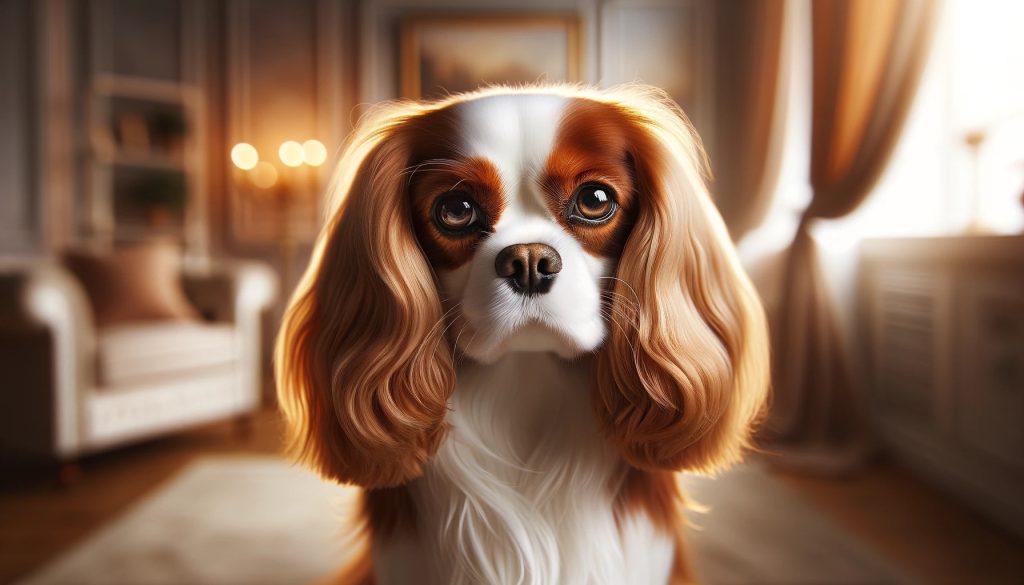
The Charm of the Cavalier King Charles Spaniel: A Guide for Dog Lovers
The Cavalier King Charles Spaniel, with its expressive eyes and elegant demeanor, is a breed that has enchanted dog lovers for centuries. Known for their affectionate nature and regal appearance, these dogs are a popular choice for families and individuals alike. In this article, we’ll explore some common questions about the breed to provide a better understanding of these delightful companions.
Do King Cavaliers Smell Bad?
Generally, Cavalier King Charles Spaniels do not have a strong odor. Like all breeds, they may develop a “doggy smell” if not groomed regularly. Regular bathing, along with routine ear cleaning and dental care, will help keep any unpleasant smells at bay. It’s important to maintain their grooming routine, as their long, silky coats can trap dirt and debris.
Why Are King Charles Cavaliers Banned in Some Places?
The notion that King Charles Cavaliers are banned is a misconception. In reality, they are not commonly listed among breeds banned or restricted in any major region. However, it’s always advisable to check local regulations if you’re considering adopting any dog breed, as rules can vary by area.
Why Are King Charles Cavaliers So Expensive?
The price of Cavalier King Charles Spaniels can be high due to several factors. First, the cost of responsibly breeding these dogs, including health screenings for common genetic issues like heart conditions and hip dysplasia, contributes to their price. Also, their popularity and demand play a significant role. The cost may include expenses related to early puppy care, vaccinations, and ensuring the puppies are well-socialized.
Why Do King Charles Cavaliers Shed So Much?
Cavalier King Charles Spaniels have a rich, luxurious coat that requires regular grooming. They are moderate to heavy shedders, especially during seasonal changes. Regular brushing, at least a few times a week, can help manage shedding by removing loose fur and preventing mats. A diet rich in omega fatty acids can also help maintain a healthy coat.
Why Is My King Charles Cavalier So Big?
The size of a Cavalier King Charles Spaniel can vary, but if your dog seems larger than the standard, it could be due to genetics or overfeeding. Some Cavaliers might be larger due to their lineage, especially if they come from a background where breed standards were not strictly adhered to. Additionally, like any breed, they can become overweight without proper diet and exercise, which can make them appear bigger than they should be.
What Are Common Health Issues in King Charles Cavaliers?
Cavalier King Charles Spaniels, while generally healthy, are prone to certain health conditions. The most notable is mitral valve disease, a heart condition common in the breed, especially as they age. They are also susceptible to syringomyelia, a serious condition affecting the brain and spine, causing discomfort and pain. Regular veterinary check-ups and being aware of the signs of these conditions can help in early detection and management.
How to Maintain Optimal Health in Your Cavalier?
Maintaining optimal health in a Cavalier King Charles Spaniel involves a balanced diet, regular exercise, and routine health checks. Due to their predisposition to heart issues, a diet low in fat and appropriate for their age and activity level is recommended. Regular, moderate exercise helps keep them fit and healthy. Also, keeping up with vaccinations and preventive treatments is crucial for their well-being.
Are King Charles Cavaliers Easy to Train?
Cavalier King Charles Spaniels are known for their intelligence and eagerness to please, which generally makes them easy to train. They respond well to positive reinforcement techniques, such as treats and praise. Early socialization and obedience training are important to develop a well-behaved and confident dog. Cavaliers are sensitive and respond best to gentle, patient training methods.
The Importance of Socializing Your Cavalier
Socialization is crucial for Cavalier King Charles Spaniels. Exposure to various people, environments, and other animals at a young age helps them become well-adjusted adults. They are naturally sociable dogs and usually get along well with other dogs and pets. Socialization helps prevent timidity and fearfulness in unfamiliar situations.
Are King Charles Cavaliers Good with Children and Families?
Cavalier King Charles Spaniels are excellent with children and make ideal family pets. They are affectionate, gentle, and patient, making them great companions for kids. However, due to their small size, interactions with very young children should be supervised to ensure they are not accidentally hurt. Their sociable nature means they usually integrate well into a household with other pets.
Conclusion
The Cavalier King Charles Spaniel is a breed that embodies grace and affection. While their grooming needs and potential health concerns require attention, their loving nature and adaptability make them a wonderful pet for families and individuals alike. Understanding their needs and characteristics is key to providing a happy and healthy life for these charming dogs. Whether you’re drawn to their elegant looks or their affectionate temperament, the Cavalier King Charles Spaniel is sure to bring joy and companionship to your home.
